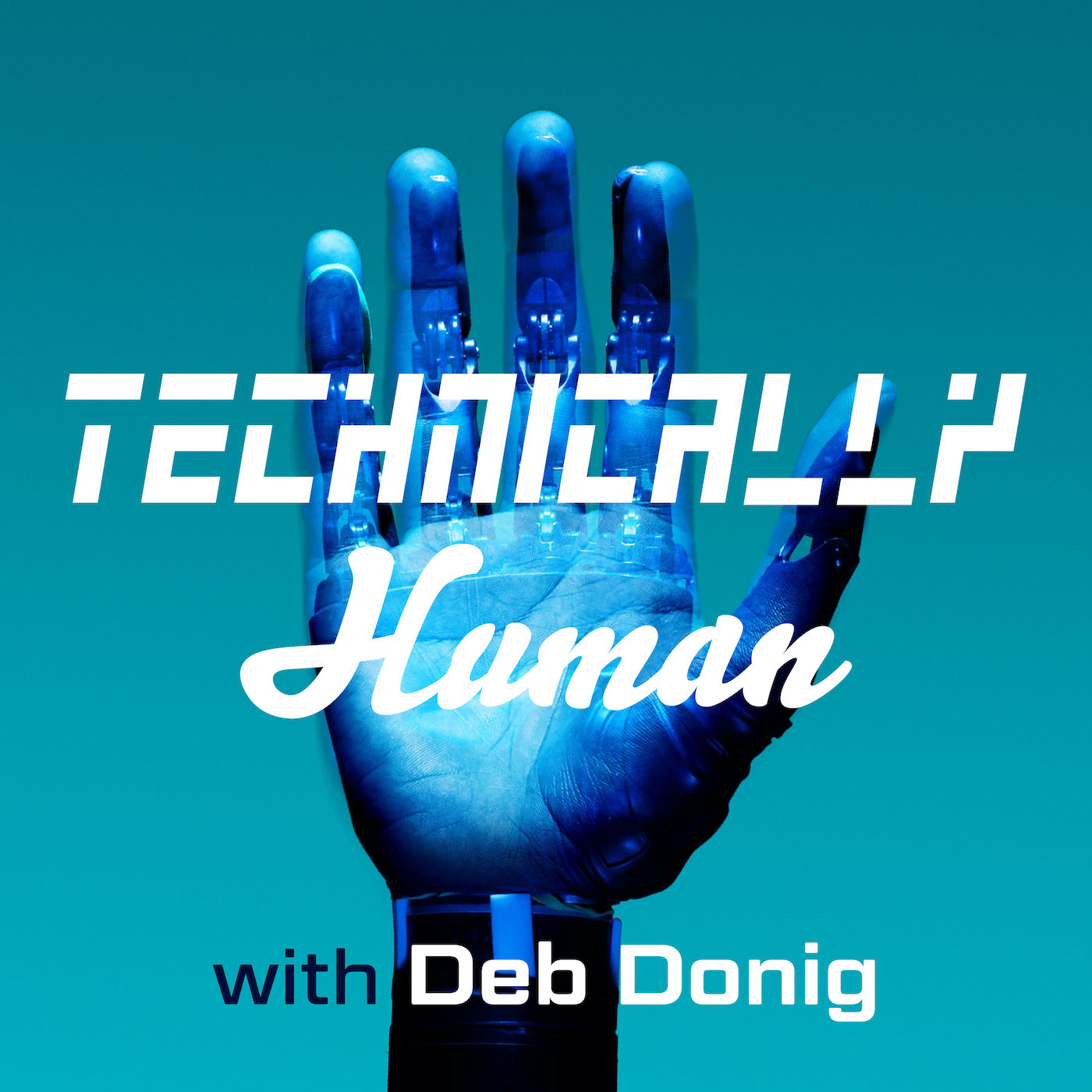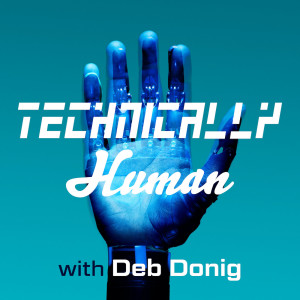
Technically Human is a podcast about ethics and technology where I ask what it means to be human in the age of tech. Each week, I interview industry leaders, thinkers, writers, and technologists and I ask them about how they understand the relationship between humans and the technologies we create. We discuss how we can build a better vision for technology, one that represents the best of our human values.
Episodes

Friday Apr 14, 2023
Friday Apr 14, 2023
Welcome back to another episode in the “22 Lessons on Ethics and Technology for the 21st Century” series. In this episode of the series, we take a deep dive into the history of how technology intersects with human rights. My thinking on ethics and technology has human rights at its foundations, so I was particularly excited to sit down with Dr. Jay Aronson, one of the leading thinkers on science, technology, and human rights. We explore how technologies have coincided with the development of human rights in ethical and political terms, and we look at the role that technologies play in our contemporary moment in enforcing human rights--and violating them.
Dr. Jay Aronson is the founder and director of the Center for Human Rights Science at Carnegie Mellon University. He is also Professor of Science, Technology, and Society in the History Department. Aronson’s research and teaching examine the interactions of science, technology, law, media, and human rights in a variety of contexts. His current project focuses on the documentation and analysis of police-involved fatalities and deaths in custody in the United States.This work is being done through collaborations with the Pennsylvania Prison Society and Dr. Roger A. Mitchell, the Chief Medical Examiner of Washington, DC. In addition, he maintains an active interest in the use of digital evidence (especially video) in human rights investigations. In this context, he primarily facilitates partnerships between computer scientists and human rights practitioners to develop better tools and methods for acquiring, authenticating, analyzing, and archiving human rights media. Previously, Aronson spent nearly a decade examining the ethical, political, and social dimensions of post-conflict and post-disaster identification of the missing and disappeared in collaboration with a team of anthropologists, bioethicists, and forensic scientists he assembled. This work built on his doctoral dissertation, a study of the development of forensic DNA profiling within the American criminal justice system. His recent book, Who Owns the Dead? The Science and Politics of Death at Ground Zero (Harvard University Press, 2016), which analyzes the recovery, identification, and memorialization of the victims of the 9/11 World Trade Center attacks, is a culmination of this effort. Aronson has also been involved in a variety of projects with colleagues from statistics, political science, and conflict monitoring to improve the quality of civilian casualty recording and estimation in times of conflict. Aronson received his Ph.D. in the History of Science and Technology from the University of Minnesota and was both a pre- and postdoctoral fellow at Harvard University’s John F. Kennedy School of Government. His work is funded by generous grants from the MacArthur Foundation, the Oak Foundation, and the Open Society Foundations.

No comments yet. Be the first to say something!